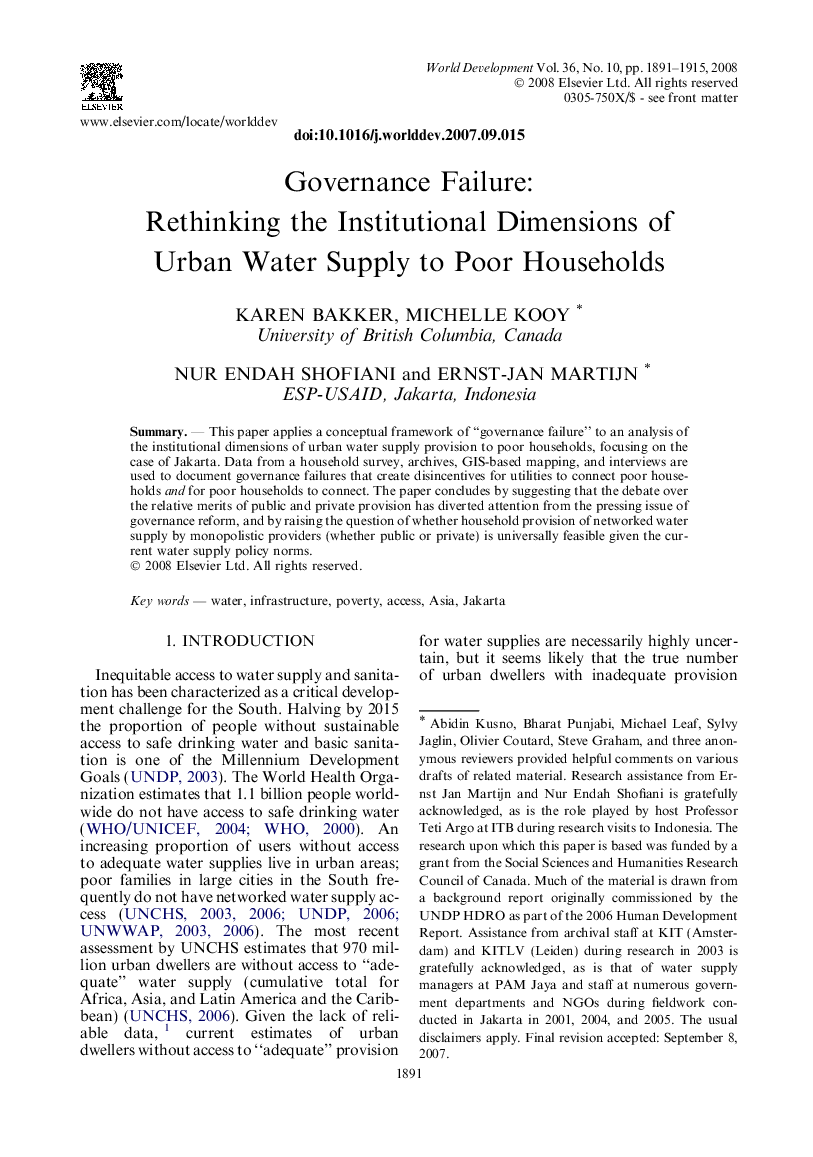| Article ID | Journal | Published Year | Pages | File Type |
|---|---|---|---|---|
| 992493 | World Development | 2008 | 25 Pages |
SummaryThis paper applies a conceptual framework of “governance failure” to an analysis of the institutional dimensions of urban water supply provision to poor households, focusing on the case of Jakarta. Data from a household survey, archives, GIS-based mapping, and interviews are used to document governance failures that create disincentives for utilities to connect poor households and for poor households to connect. The paper concludes by suggesting that the debate over the relative merits of public and private provision has diverted attention from the pressing issue of governance reform, and by raising the question of whether household provision of networked water supply by monopolistic providers (whether public or private) is universally feasible given the current water supply policy norms.
